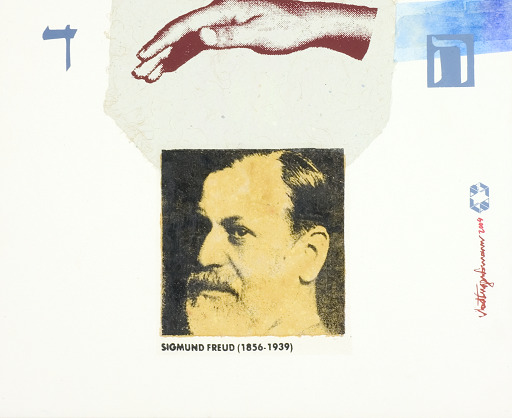The Shabbat and the Tension Between Party Time and Work Time
DOI:
https://doi.org/10.35699/1982-3053.2024.51868Keywords:
Shabbat, Leisure, WorkAbstract
This paper analyzes the wordings of the biblical Shabbat legislation, some traditions of its observance and excerpts from literary narratives in order to characterize the seventh day and the seven-year cycles as a time of rest and celebration. This analysis makes it possible to discuss the tension between the sacred and the profane in the Sabbath context, as well as the relationship between party time and work time. This paper is the result of qualitative bibliographical research, based on the contribution of Jewish studies and authors such as Rehfeld (1988, 2003, 2008), Saldanha (1995, 2005, 2023) and Heschel (1969. The results show the contribution of studies on the festive dimension of Shabbat to contemporary reflections on the relationship between work and leisure.
Downloads
References
AGUIAR, Flávio. Ressonâncias da Bíblia na literatura. In: FRYE, Northrop. O código dos códigos: a Bíblia e a literatura. Tradução de Flávio Aguiar. São Paulo: Boitempo, 2004.
ALEIKHEM, Scholem. O relógio. In: GUINSBURG, Jacó. A paz seja convosco. São Paulo: Perspectiva, 1966.
CHOURAQUI, André. Lavie quotidienne des hommes de la Bible. Paris: Hachette, 1978.
CUNHA, Keila S. F. da. A música do Shabat em Recife. Dissertação (Mestrado em Música), Centro de Ciências Humanas, Letras e Artes, Universidade Federal da Paraíba, 2011.
DE GOUVEIA, Mônica. Luzes flamejantes: O shabat em contos de Mêndele, I. L. Peretz e Scholem Aleihem. Dissertação (Mestrado em Letras), Faculdade de Filosofia, Letras e Ciências Humanas, Universidade de São Paulo, São Paulo, 2017.
DIAS, Geraldo Coelho. As festas na Bíblia. Theologica, v. 31, n. 2, 1996.Disponível em:https://revistas.ucp.pt/index.php/theologica/article/view/12034. Acesso em: 25 fev. 2024.
FELDMAN, Cláudio. O décimo homem. Maaravi: Revista Digital de Estudos Judaicos da UFMG, v. 9, n. 17, p. 344-352, 2015. Disponível em: https://periodicos.ufmg.br/index.php/maaravi/article/view/14295. Acesso em: 10 mar. 2024.
FELDMAN, Sergio Alberto. Trabalho e escravidão no judaísmo bíblico. Arquivo Maaravi: Revista Digital de Estudos Judaicos da UFMG, Belo Horizonte, v. 2, n. 2, p. 122–134, 2008. Disponível em: https://periodicos.ufmg.br/index.php/maaravi/article/view/13942.Acesso em: 15 fev. 2024.
FRYE, Northrop. O código dos códigos: a Bíblia e a literatura. Tradução de Flávio Aguiar. São Paulo: Boitempo, 2004.
HA-LEVI, Yehuda. A felicidade do Shabat. In: PINKUSS, F. O Shabat: antologia de obras sobre o día santificado. São Paulo: CIP, 1961.
HEINTZMAN, Paul. Implications for leisure from a review of the biblical concepts of Sabbath and rest. The Journal of Biblical Integration in Business, v. 18, n.1, 2015.https://cbfa-jbib.org/index.php/jbib/article/view/106. Acesso em: 10 fev. 2024.
HESCHEL, Abraham Joshua. Israel: an echo of eternity. New York: Farrar, Straus and Giroux, 1969.
LANTERNARI, Vittorio. La grande festa. 2. ed. Bari: DedaloLibri, 1976.
MESCHONNIC, Henri. Poétique du sacré dans la Bible. In: MESCHONNIC, Henri. Pour lapoétique II. Paris: Gallimard, 1973.
MILLGRAM, Abraham E. The sabbath in Jewish life. New York: National Federation of Jewish Men’s Club, 1957.
PATAI, Raphael. The Hebrew Goddess. 3. ed. Michigan: Wayne State University Press, 1990.
PERETZ, Isaac Leib. A leitora. In: GUINSBURG, Jacó. Contos de I. L. Peretz. São Paulo: Perspectiva, p. 198-190, 1966.
PINKUSS, Fritz. Quatro milênios de existência judaica: uma resumida História Geral israelita, dos primórdios aos nossos dias (III). Revista de História, [S. l.], v. 32, n. 65, p. 85–150, 1966.Disponível em: https://www.revistas.usp.br/revhistoria/article/view/124025. Acesso em: 15 fev. 2024.
REHFELD, Walter Israel. Tempo e religião: a experiência do homem bíblico. São Paulo: Perspectiva: Editora da Universidade de São Paulo, 1988.
REHFELD, Walter Israel. Nas sendas do judaísmo. São Paulo: Perspectiva, 2003.
REHFELD, Walter Israel. Ensaios filosóficos. São Paulo: Perspectiva, 2008.
SALDANHA, Luís Cláudio Dallier. O princípio sabático: trabalho, descanso e celebração no tempo do homem bíblico. Dissertação (Mestrado em Letras), Faculdade de Filosofia, Letras e Ciências Humanas, Universidade de São Paulo, São Paulo, 1995.
SALDANHA, Luís Cláudio Dallier. Princípio sabático: trabalho e tempo livre na literatura bíblico-judaica. Rio de Janeiro: GW Editora, 2005.
SALDANHA, Luís Cláudio Dallier. Representação literária da comida no shabbat: uma leitura do conto “Sabá” de Mêndele Mocher Seforim. Arquivo Maaravi: Revista Digital de Estudos Judaicos da UFMG, Belo Horizonte, v. 17, n. 32, p. 126-137. Disponível em: https://periodicos.ufmg.br/index.php/maaravi/article/view/45535. Acesso em: 20 mar. 2024.
SEFORIM, Mêndele Mocher. Sabá. In: ORTIZ, Carlos; GUINSBURG, Jacó. Antologia judaica. São Paulo: Rampa, 1948.
SIDUR TEFILLAT MATZLIAH. Com tradução, explicações e comentários pelo Rabino Meir Matzliah Melamed. 5. ed. São Paulo: Templo Israelita Brasileiro Ohel Iaacov, 1989.
Downloads
Published
How to Cite
Issue
Section
License
Copyright (c) 2024 Arquivo Maaravi: Revista Digital de Estudos Judaicos da UFMG

This work is licensed under a Creative Commons Attribution 4.0 International License.
Os direitos autorais pertencem exclusivamente aos autores. Os direitos de licenciamento utilizados pelo periódico é a licença Creative Commons Attribution 4.0 (CC BY 4.0): são permitidos o compartilhamento (cópia e distribuição do material em qualquer meio ou formato) e adaptação (remix, transformação e criação de material a partir do conteúdo assim licenciado para quaisquer fins, inclusive comerciais.






